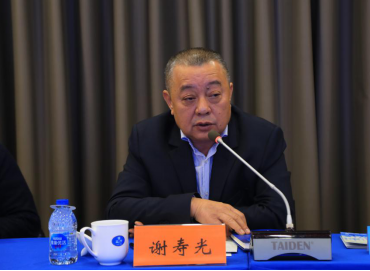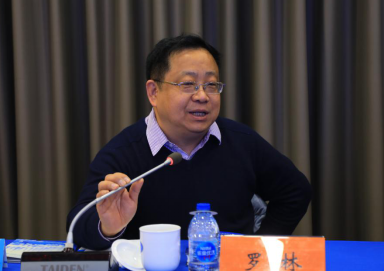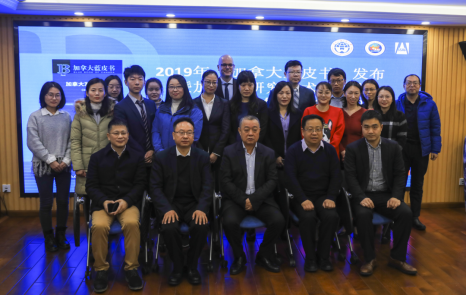On January 7, the Press Conference for the Canada Blue Book (2019) and Symposium on Canadian Studies, co-organized by CCS of GDUFS, which is the Cultivation Base for Regional and National Studies of the Ministry of Education, and Social Sciences Academic Press, were held in Beijing. Xie Shouguang, President of Social Sciences Academic Press, Professor Luo Lin, Director of the Secretariat for National and Regional Studies of Universities and Dean of the National and Regional Studies Institute of Beijing Language and Culture University, Professor Tang Xiaosong, Director of CCS of our university and editor-in-chief of the Blue Book of Canada: Annual Report on the Development of Canada (2019) (hereinafter referred to as the Blue Book) and others attended the conference. The Blue Book was composed of 1 general report, 4 sub-reports, and 7 special reports. It deeply analyzed and predicted Canada's hot issues from 2018 to 2019, such as the domestic political situation, the diplomatic situation, economic development, social conditions and so on.
Xie Shouguang said that it was the sixth release of the Blue Book, which greatly promoted Canadian studies and provided reference for domestic governments at all levels, think tanks, enterprises, and all sectors of society. He spoke highly of the publication of the Blue Book and set great expectations for it.

Professor Luo Lin pointed out that CCS’ Blue Book has always adhered to high quality standards. With rich research content and highly dynamic and forward-looking analysis, the Blue Book has set an example for other Centers of National and Regional Studies in China. He emphasized that the Blue Book is of great importance in supporting and promoting China-Canada exchanges and mutual development, and advancing the development of all aspects of work.

At the press conference, Tang Xiaosong gave a brief introduction to the content of the new book. 2018-19 was the last year of the first term of the Liberal government. Canada's economy had grown to a certain extent, with real GDP growth being driven by consumption, exports, and investment, respectively. The characteristics of its economic growth were as follows: commodity imports and exports increased; the foreign trade deficit narrowed; jobs increased, and the unemployment rate decreased in most provinces and territories, etc. Due to many factors that slowed down the growth rate, many indicators fell in the second half of the year, especially in the fourth quarter, and annual economic growth slowed by 1.2 percentage points compared with the previous year. Politically, Trudeau was re-elected, but the Liberal Party formed a minority government and adopted a case-by-case approach with respect to policy issues while seeking support from opposition parties. The minority government would also face more constraints in the future. In terms of social governance, the social policies of the Canadian Federal Government fully demonstrated its three functions ofprotection, guarantee and balance. The development of its social policies in the future required special attention to three potential problems: whether government finance is sustainable; the widening gap between the rich and the poor that negatively impacted international assistance; and how to adjust the tax system rationally. Diplomatically, accidents occurred frequently. Relations deteriorated between Canada and the United States, Saudi Arabia, Russia, China and other countries. The new government faced the problem of how to address China-Canada relations and major power relations.

Next, at the symposium, whose theme was "China-Canada Relations in the Post-Crisis Era: Choices and Ways", Yao Peng, Executive Deputy Director of the Center for Canadian Studies of the Chinese Academy of Social Sciences, and Geoffrey McCormack, a full-time researcher of CCS at GDUFS, delivered speeches respectively. The themes of their speeches were "Promoting China-Canada Cooperation and Development in the Consensus of Economic Globalization" and "Macroeconomic Instability in Canada". Focusing on economic globalization, Yao Peng talked about the Canadian worldview and its position, the Huawei incident, the Sino-US technological and financial war, and the reconstruction of Sino-Canada relations. Dr. McCormack analyzed and interpreted Canada's problems from an economic perspective, and proposed countermeasures to solve the problems. Participants had heated discussions and in-depth exchanges on China-Canada relations.
Experts and scholars from the Chinese Academy of Social Sciences, Beijing Language and Culture University, Shanghai International Studies University, Beijing International Studies University, the University of Ottawa and other universities and research institutions attended the meeting.

